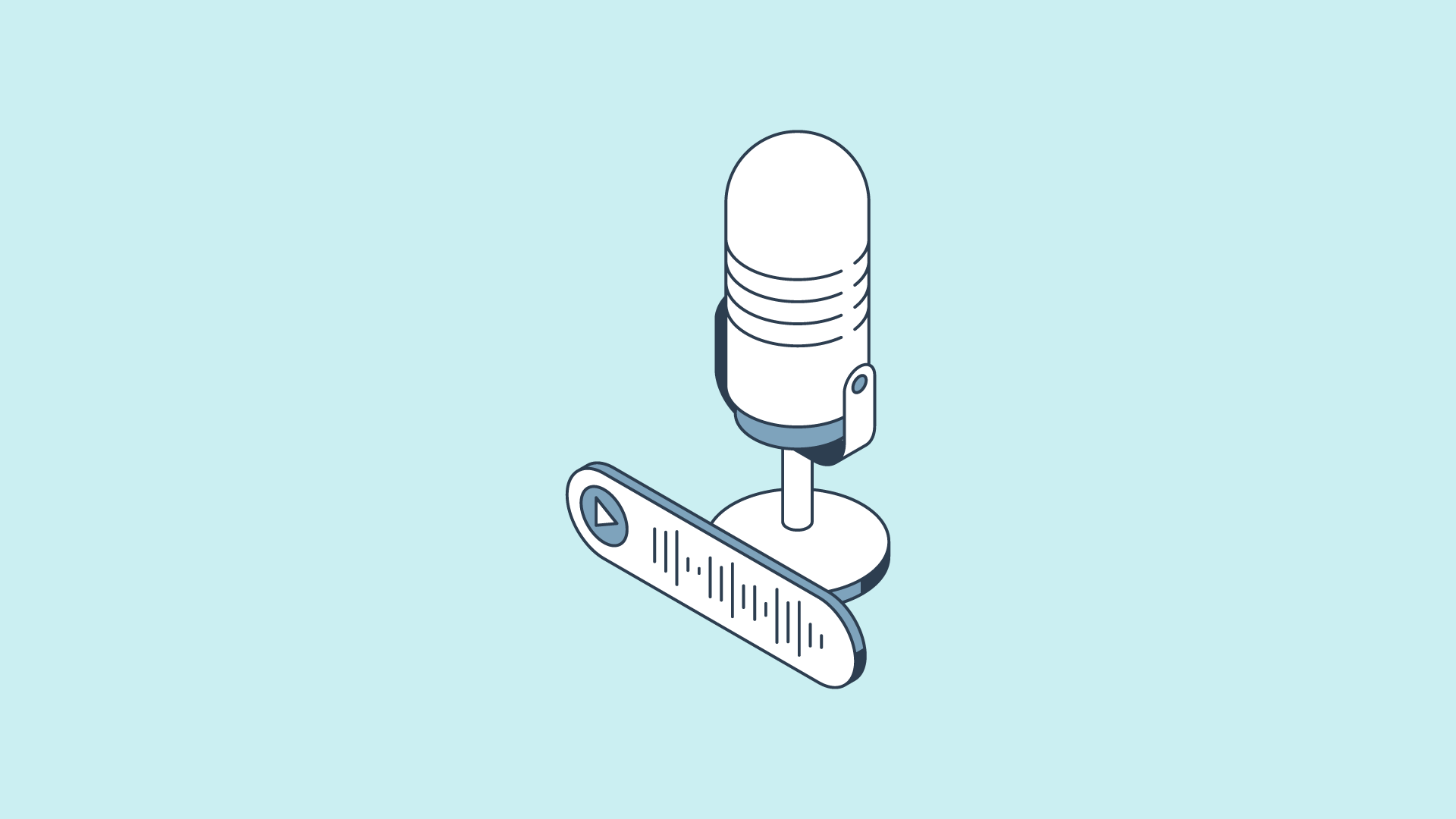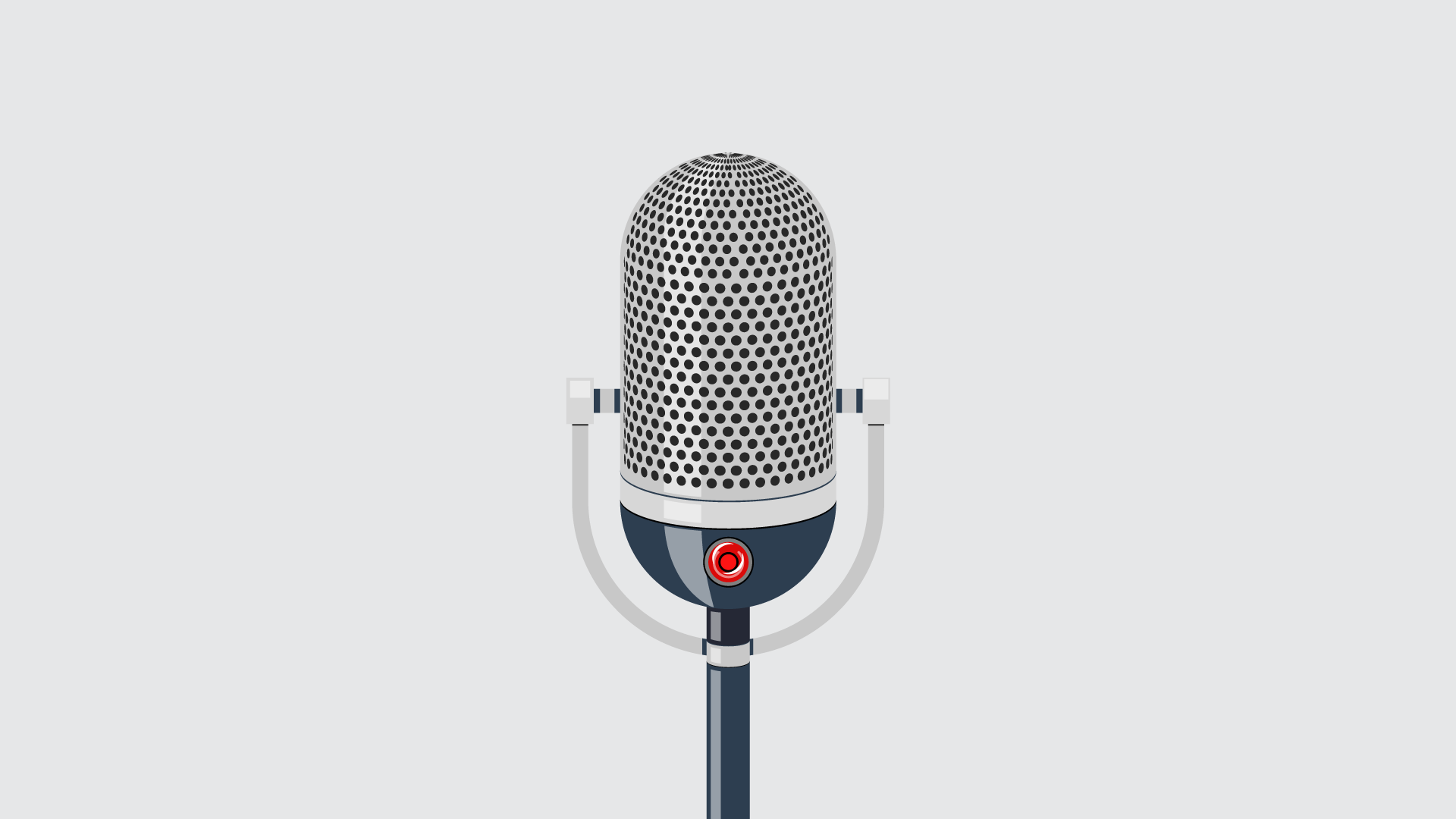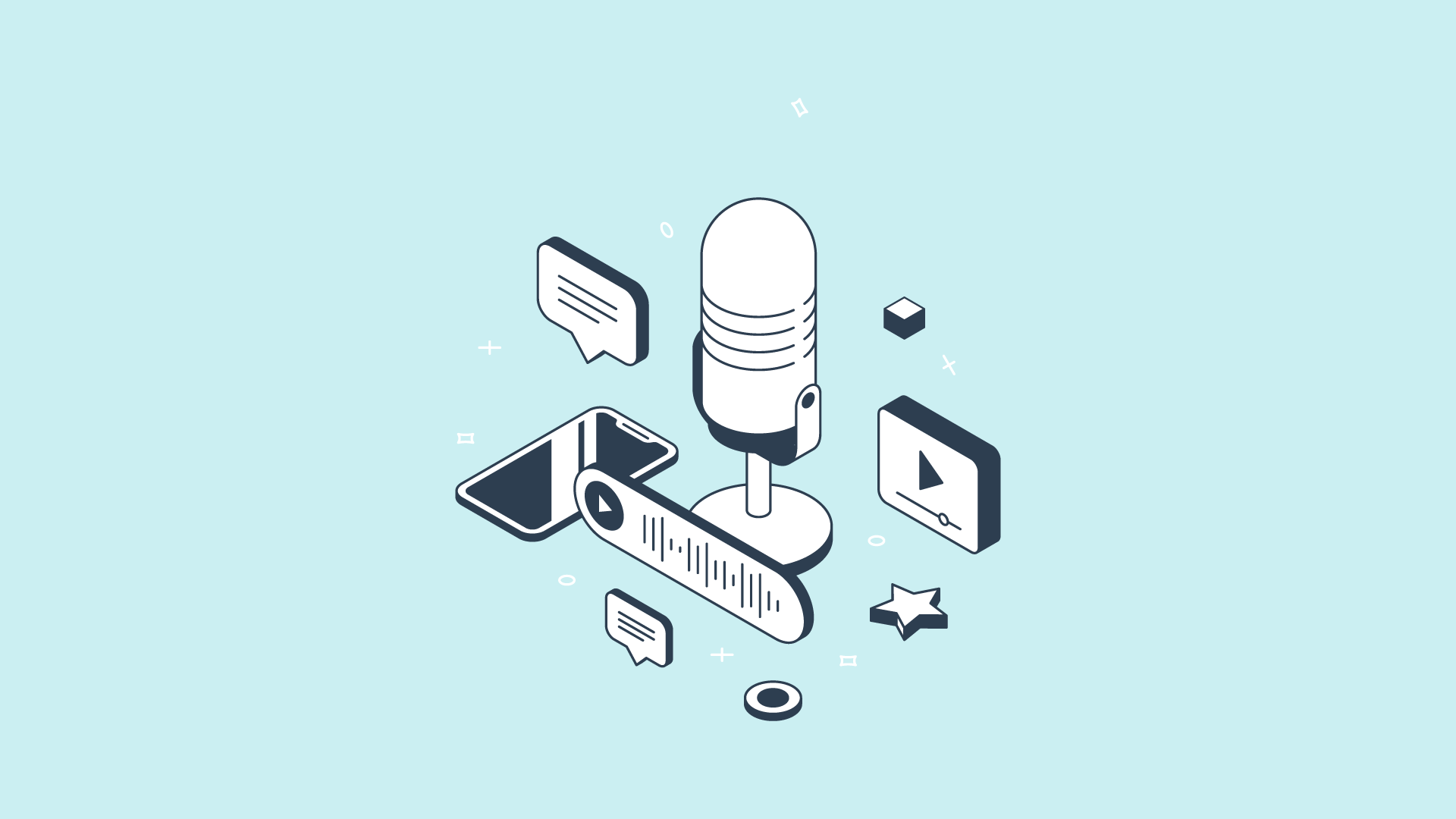Have you ever heard the term "podcast" and wondered what it means? With the rise of digital media and the popularity of audio content, podcasts have become a household name. But what exactly is a podcast and how does it work?
Podcasts have revolutionized the way we consume audio content. With thousands of podcasts on various topics, they offer a convenient and entertaining way to learn, be entertained, and stay informed.
However, understanding what a podcast is and how it differs from other forms of media is essential to fully appreciate its value.
If you've been curious about what a podcast is and how it fits into the modern media landscape, you're in the right place. In this article, we will explore the definition of a podcast, its origins, and why it has become such a popular medium for both creators and listeners alike.
So, let's dive into the fascinating world of podcasts and discover what makes them so captivating and influential.
|
Podcast A podcast is an audio series that a user can download to a personal device and listen to at their leisure. |
What is Podcasts?
At its core, a podcast is an audio program that is distributed digitally, typically in the form of episodes. Unlike traditional radio broadcasts, podcasts are available on-demand, allowing listeners to choose when and where they tune in.
This flexibility is a hallmark of podcasting, making it an ideal medium for busy professionals and consumers.
Podcasting may seem like a recent phenomenon, but its roots trace back to the early 2000s. In 2004, former MTV video jockey Adam Curry and software developer Dave Winer developed a way to automatically download Internet radio broadcasts to an iPod, coining the term "podcast."
Since then, podcasting has come a long way, evolving into a diverse and expansive platform.
Podcasts and Inbound Marketing
Inbound marketing is all about attracting leads and converting them into paying customers. It's about providing value to prospects before asking them to buy anything.
Podcasts fit perfectly into the inbound marketing model. By offering helpful content, businesses can build trust and credibility with their target market. This helps them convert more leads into sales.
So if you're looking to grow your business by attracting new customers, consider starting a podcast. You'll be able to create a relationship with your audience and keep them coming back for more.
The Mechanics of Podcasting
Podcast Formats and Styles
Podcasts come in various formats, each tailored to specific goals and audience preferences. Common formats include interview-style shows, solo narrations, panel discussions, and narrative storytelling. Understanding these formats will help you choose the one that aligns best with your marketing objectives.
The Role of Podcast Hosts
A podcast host plays a pivotal role in shaping the show's identity and engaging with the audience. Whether you choose an in-house expert or a charismatic industry influencer, the host's personality and expertise can significantly impact your podcast's success.
The Power of Podcast Guests
Inviting relevant and influential guests to your podcast can be a game-changer. Leveraging the reach and expertise of your guests can expand your podcast's audience and credibility.
The Podcasting Production Process
Creating a podcast involves several stages, from planning and recording to editing and publishing. While it may seem daunting, advancements in technology have made podcast production more accessible than ever.
Statistics indicate that as of 2021, 79% of podcast listeners use their smartphones to consume podcast content, highlighting the convenience and portability of the medium.
The Podcast Audience
Identifying Your Target Podcast Audience
Understanding your target audience is a fundamental step in any marketing strategy, and podcasting is no exception. Podcast listeners are a diverse group, but each show tends to attract a specific demographic. Tailoring your podcast content to resonate with your intended audience is essential for success.
Understanding Podcast Listener Behavior
Podcast listeners are a highly engaged bunch. A study by Buzzsprout found that 80% of monthly podcast listeners tune in to the majority of the episodes they start, emphasizing the loyalty and commitment of the podcast audience.
This level of engagement can translate into a dedicated following for your brand or business.
Why Podcasts Matter to Your Audience
Podcasts offer something unique in today's fast-paced digital landscape: an intimate and immersive listening experience. Listeners often develop a sense of connection and trust with podcast hosts, making it an ideal medium for building brand affinity and conveying your message authentically.
In the upcoming sections, we'll explore how podcasts benefit businesses and marketers by enhancing brand visibility, connecting with digital-savvy consumers, and expanding brand reach.
The Benefits of Podcasting in Marketing
Podcasting has become a popular and effective marketing tool in recent years, offering numerous benefits for businesses and brands.
In this section, we'll explore the benefits of podcasting in marketing and why you should consider starting your podcast.
1. Easy to create
To start making podcasts, all you need is a microphone, audio editing software, a laptop or desktop PC, and an online connection. You don't need any special skills or experience to get started.
2. Easy to distribute
You can upload podcasts to your channel on either YouTube or SoundCloud for free. Any service or device capable of hosting an audio file can be used to host a podcast.
3. Regulation-free
Podcasting has no official regulatory body, so there is a certain degree of freedom of expression that might not be available elsewhere. However, podcast creators are legally permitted to own the copyrights to their works.
4. Flexible duration
Podcasts can vary greatly in duration. Some are only an hour long, others run longer than 3 hours. Those lengths are uncommon for other types of media, which lean towards short, bite-sized snacks. Longer formats enable more detailed discussions about topics that aren’t common in shorter formats.
5. Informative
Podcasts provide information that would otherwise be difficult to access.
For example, if you want to learn about a specific topic, such as how to make money online, you could search for relevant podcasts. The content will be much easier to find because it’s already organized into a format that makes sense.
There are now thousands of different types of shows available for listening to. Some of these include news, comedy, science, and even specific niches.
6. On-demand
Users can access podcasts anytime on their mobile devices. They're easy to listen to while you're doing other activities, like walking, running, exercising, and working.
7. Building Authority and Credibility
In the realm of content marketing, authority and credibility are invaluable. A podcast allows you to position yourself or your brand as an industry expert.
Edison Research found that 54% of podcast consumers say they’re more likely to consider the brands they hear advertised on podcasts, showcasing the trust that podcasts can build.
8. Connecting with Your Audience on a Personal Level
Podcasts provide an intimate platform for sharing stories, insights, and expertise. This personal connection fosters a sense of community among your audience.
According to Voices, 48% of podcast listeners feel that they connect with the hosts, illustrating the potential for deep engagement.
9. Expanding Brand Reach Through Podcasting
Podcasts have the power to reach a global audience. According to DemandSage, as of 2023, 62% U.S. population had listened to a podcast, according to Edison Research.
This broad reach enables you to tap into new markets and demographics, strengthening your brand's position in the digital landscape.
10. Leveraging SEO with Podcast Content
Your podcast episodes can also benefit your website's search engine optimization (SEO). Transcribing your episodes and optimizing them for relevant keywords can improve your website's visibility on search engines, driving organic traffic.
How Podcasts Work
The podcast industry generally works like this, someone records a podcast and then publishes it through a podcast hosting service or directly onto their website using an embedded audio player. After the podcast producer releases their podcast, listeners can download it through their computers, smartphones, or other devices.
Here is a guide on how to get started with podcasting for your business.
To understand how podcasts function, you must first understand two key concepts: video podcasting and a typical podcast format.
Are Podcasts Audio or Video?
Podcasts began as an entirely audio medium. With the increasing popularity of podcasts, many people have started embracing video podcasts as a way to stand apart from their competition and attract a larger audience.
Video podcasts are popular, almost 60% of listeners now prefer video podcasts. So podcast creators who want their show to see the most growth and appeal to wider audiences are adding video elements to their podcasts.
Different Types of Podcasts with Examples
While the podcasting world is vast and varied and limited only by creators’ imaginations the vast majority can be broken down into four different categories: conversational, narrative nonfiction, scripted fiction, and repurposed content.
These types of podcasts range from those that are purely informational to ones that feature entertainment value. There are countless examples of each type of podcast out there and it can be difficult to know what works best for your brand.
Here we'll take a look at some common podcast formats and how they work.
Conversational
A conversational podcast is like having a conversation with someone over coffee. You might talk about politics, sports, or anything else that interests both parties.
In this case, the host usually takes turns talking while the guest listens. This format typically involves interviews, where the host talks to guests about topics related to their area of expertise.
A good example of this is the Joe Rogan Experience podcast, hosted by comedian and actor Joe Rogan. He interviews guests ranging from comedians to scientists to musicians. As he does so, his audience gets to hear interesting stories and learn something along the way.
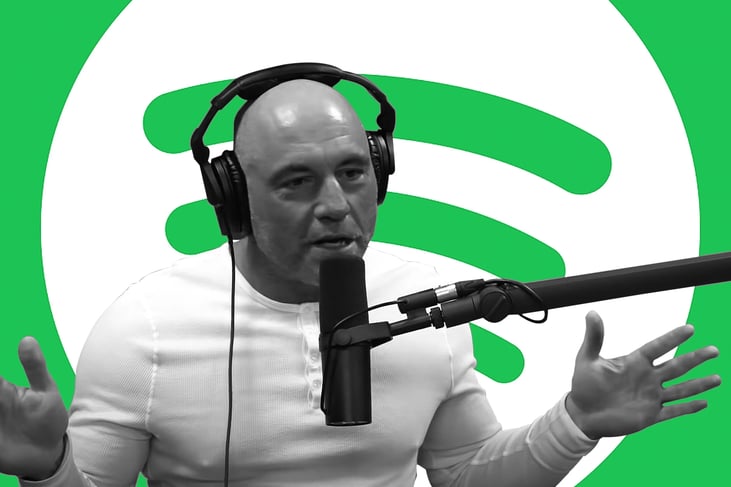
Narrative Nonfiction
A second structure that works well for podcasts is long-form storytelling. Non-fiction stories cover any topic using a narrative style. These podcasts often include interviews with experts in the field.
For instance, the HowStuffWorks podcast features interviews with experts in various fields including science, technology, history, and more.
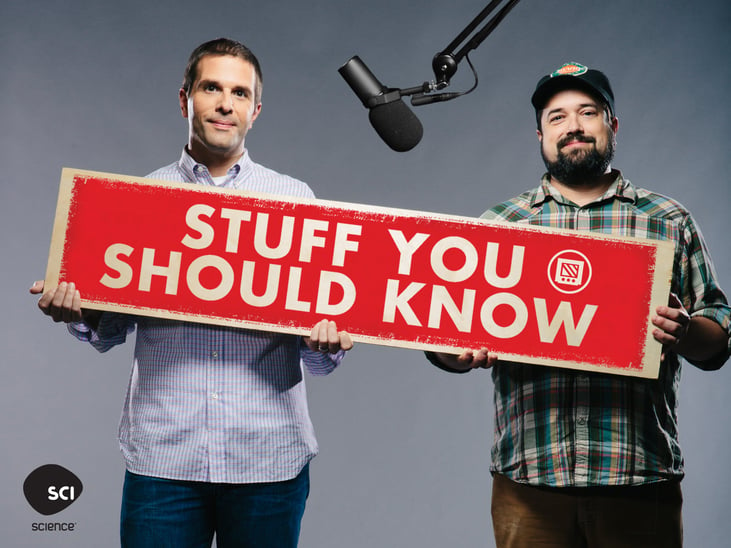
This podcast has been around since 1998 and has become one of the most useful shows in the entire podcast space. It's no surprise why. Each episode covers a particular subject and includes interviews with experts in the relevant
Scripted Fiction
Unlike the other two formats, scripted podcasts feature fictional narratives. They're often based on books or movies and include elements of drama, suspense, romance, and humor. Some well-known scripted podcasts include Business Wars by Wondery.
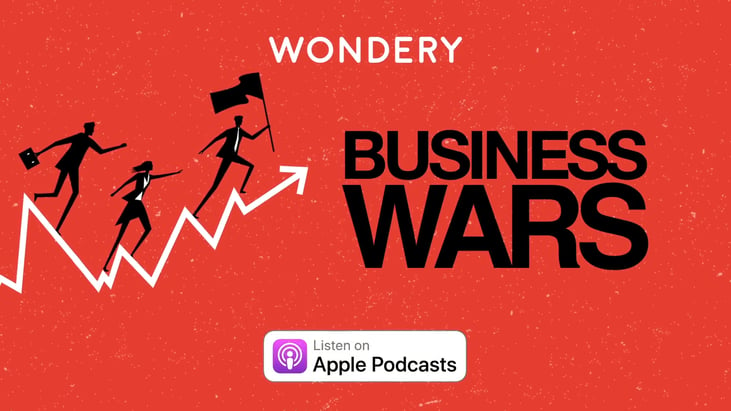
As the episodic format of podcasts works well for longer-form nonfiction stories, so too does fiction fare well in the form of podcasts. The format allows you to tell a story without being constrained by time limits.
Repurposed Content
Some podcasts take existing content and repurpose it into a podcast. This could mean taking an article or blog post and turning it into a podcast episode. Or it could mean creating new episodes out of old material.
For instance, TED Talks is a popular podcast that repurposes videos from the TED website. The site hosts lectures from top speakers across many different subjects. TED Talks uses these lectures as part of its podcast series.

This is an approach you can use for your business to educate your target audience and grow your reach.
The Ever-Evolving Podcast Landscape
Today, podcasts cover a staggering array of topics, from true crime and pop culture to industry-specific insights and educational content. According to recent statistics, there are over 2 million podcasts and more than 48 million podcast episodes available worldwide, a number that continues to grow rapidly.
This diversity means there's a podcast for virtually every niche, making it a valuable medium for marketers to tap into specialized audiences.
Start Podcasting for your Business
Podcasting has emerged as a potent tool in modern marketing strategies. Its unique ability to establish authority, connect with audiences on a personal level, and expand brand reach makes it a valuable addition to any marketer's toolkit.
As the podcasting landscape continues to evolve, embracing this medium can set your brand apart in the competitive digital landscape.
By defining your podcast goals, crafting engaging content, and consistently delivering value to your audience, you can harness the power of podcasting to enhance brand visibility and build lasting connections.
Remember, podcasting is not just about speaking; it's about engaging, educating, and leaving a lasting impact on your listeners.
So, are you ready to amplify your digital marketing strategy with podcasting? The mic is in your hands, and the audience is waiting. Dive in, and let your voice be heard in the world of podcasting. Check out our guide to getting started with podcasting.
